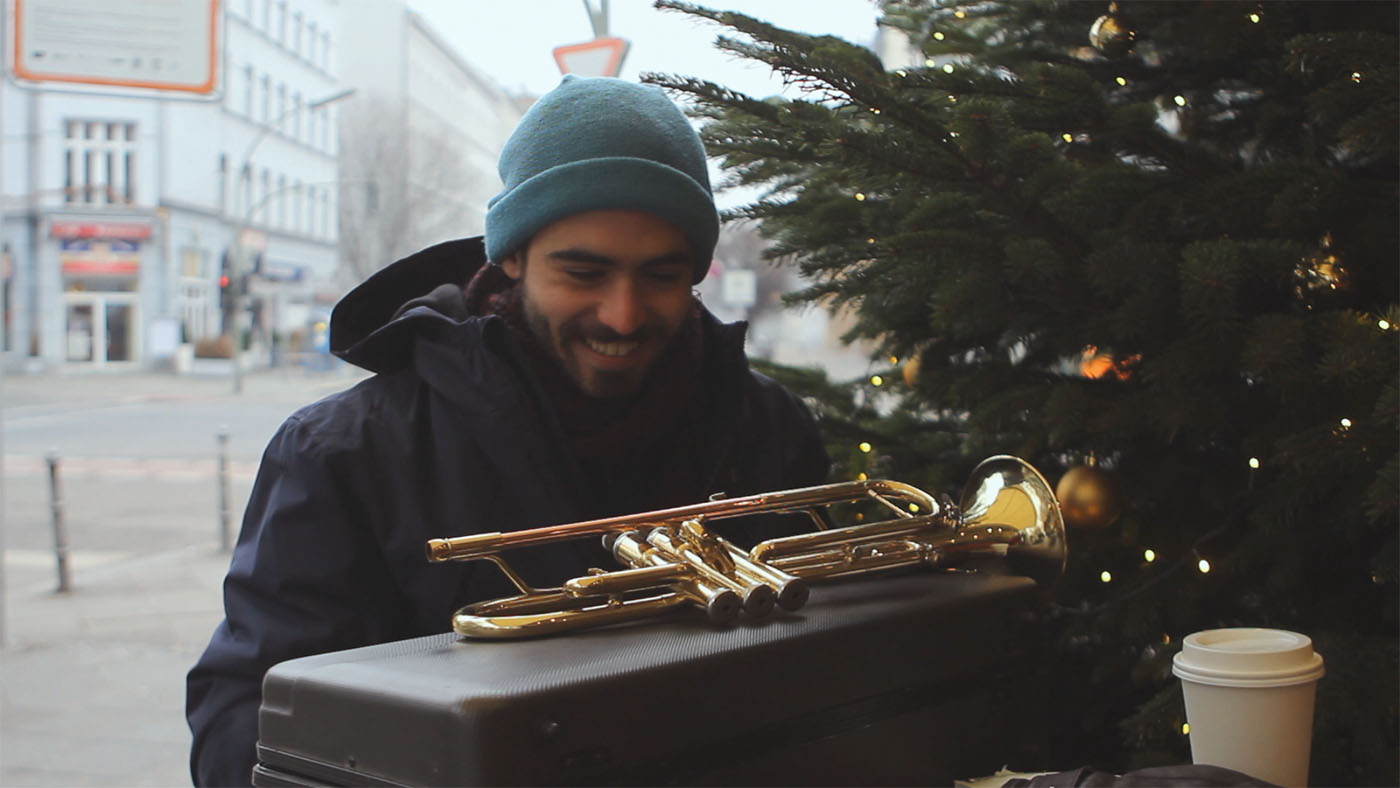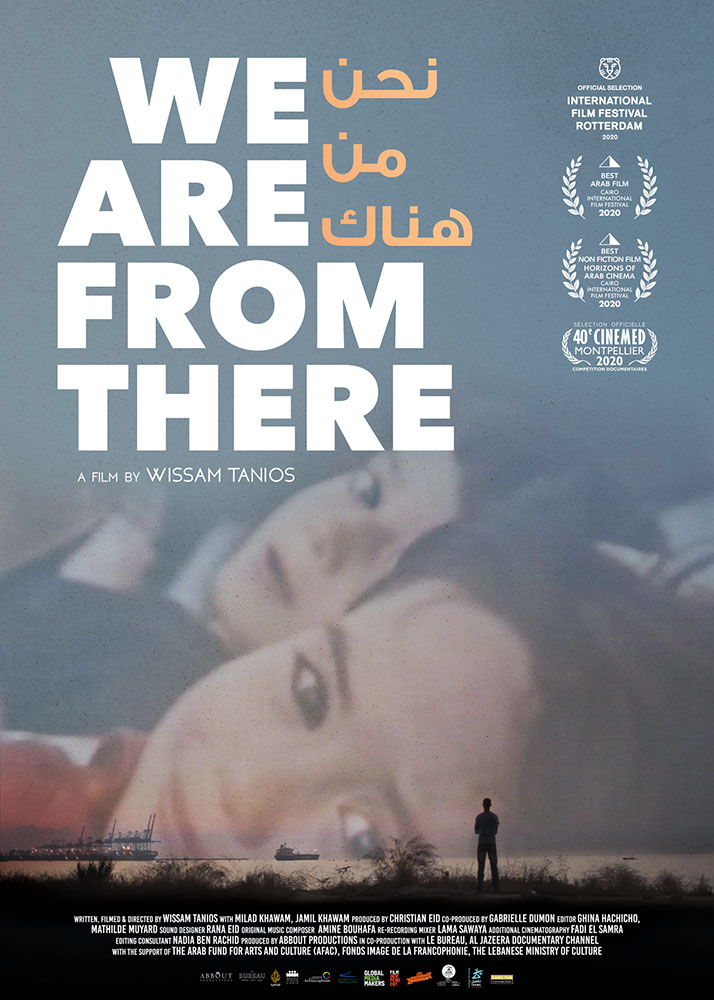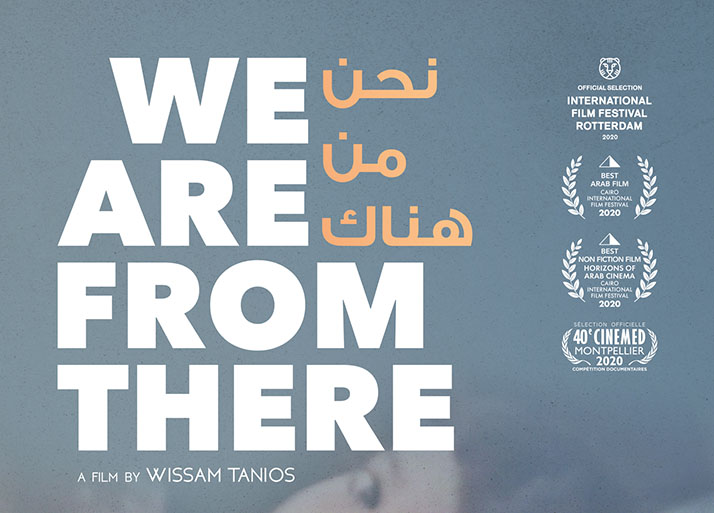
We Are From There/Loin de chez nous (2020)
A documentary directed by Wissam Tanios
With Milad Khawam and Jamil Khawam
A Lebanese French coproduction, 82m
Angélique Crux
There are many features and documentaries that tell the story of the Syrian revolution and the fate of Syrian refugees making their way to Europe, but Wissam Tanios’ documentary, We Are From There is a departure from the lot. The Beirut-born filmmaker decided to film his Damascus cousins Jamil and Milad over a five-year period, from the time they flee Syria, passing through Lebanon on their way to new lives in Europe.
These two Syrian brothers worked up the courage to leave home, and their cousin decided to document their journey with one-way tickets to Sweden and Germany, respectively.
Tanios could have easily fallen into the trap of making a dogmatic, political film, but instead traces his cousins’ lives in a deeply human manner, emphasizing the details, the emotions, feelings and gestures often captured not by a film camera, necessarily, but by cell phone footage, with the benefit of home movies and diaries. While at times the visual and sound quality is lacking, the documentary displays great confidence in its narration, and as a result, over time brothers Jamil and Milad confide in the director, their cousin, and deliver their deepest secrets.
We Are From There/Loins de chez nous is winner of several best documentary awards, including at the 2021 Arab Film Festival Val de Fensch – Fameck (France), the 2021 Panorama des Cinémas du Maghreb et du Moyen-Orient – Saint-Denis (France), and the 2020 Cairo International Film Festival, Best Arab Film & Best Documentary Award.
 Tanios as witness to their journey invites us to question ourselves on the right to build new lives elsewhere in the hope of a better future. He also examines his own relationship to his native Lebanon.
Tanios as witness to their journey invites us to question ourselves on the right to build new lives elsewhere in the hope of a better future. He also examines his own relationship to his native Lebanon.
We are invited to study the differences between Jamil the woodworker, craftsman, who opts for life in Stockholm versus Milad, who blossoms as a musician in Berlin creating a fusion of Arabic music, jazz and electronica. One brother is pragmatic, the other is an artist and a dreamer, so we can expect they will approach their social integration differently. Despite everything that separates them, we feel their mutual need not to lose their identity, not to forget the color of Damascus, nor the smell of wood from the carpenter’s shop, passed down from father to son, the magical place of their childhood.
Later, when asked if he felt he had changed a great deal over the five years of the making of the film, Milad replied: “I have changed a lot actually. I became a completely different person. My awareness has increased; my perception of the world has been enriched. My music has changed. My work has changed. My relationship with the city [Berlin] has changed. Deep down, I made a conscious decision to change. I tried to do some things and it didn’t work out, and it hurt when it didn’t; and that’s what prompted me to change. I had two choices: to get stronger and adapt to this new life, or just give up and go back home. I opted for the former.”
His brother, Jamil, however, argued that despite establishing a new life in Sweden, he hadn’t changed, really, yet had evolved. “I did not change as a person; what did change perhaps are some ideas in my head,” he said in an interview with film critic Joseph Fahim.
Even though Milad has found some success as a trumpetist in Berlin, he isn’t sure he’s there to stay. “I think I developed this addiction for moving to a new place every few years and starting all over again. Although my life is stable in Berlin, I’m not entirely satisfied. I now feel I want more. It’s impossible for me to feel at home here,” he told Fahim.
As Tanios’ film winds down, we find ourselves wondering what will remain of our origins, and what will we pass on? These are the fundamental questions that Jamil and Milad inevitably ask themselves. Sometimes falling into the abyss of despair, sometimes finding love, this film of great modesty gives us chills about the condition of the migrant experience.





Un bel article, plein de sensibilité. Il donne envie de découvrir ce documentaire. Merci.
Si possible, merci de corriger mon commentaire : … documentaire… Est le bon terme. Problème de l’écriture intuitive ! Merci
Merci pour cette critique qui donne le ton et explicite parfaitement le documentaire.